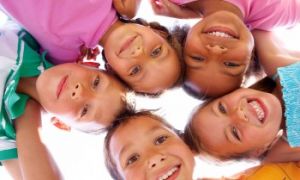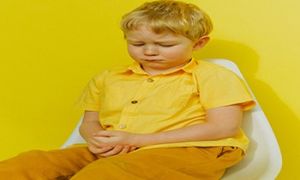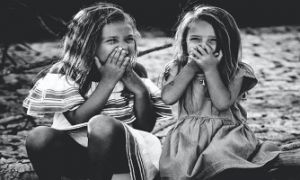

The following is a collection of science-themed “potion recipes” that blend sensory exploration, symbolic meaning, and safe chemical reactions—perfect for World Science Day or any inquiry-based learning moment. Each potion includes: A symbolic name (linked to emotional literacy or global values), a child-safe recipe using common ingredients, and a meaningful intention to spark reflection and storytelling.
Each year on November 10, World Science Day for Peace and Development invites us to reflect on the role of science in building a more inclusive, peaceful, and sustainable world. In early childhood settings, this global observance becomes a beautiful opportunity to nurture curiosity, empathy, and collaborative inquiry.
Australia’s most iconic children’s program, Play School, has teamed up with Little Scientists to bring early childhood educators a vibrant suite of STEM experiments designed for children aged 2–8 years. This exciting collaboration aligns with Series 3 and 4 of Play School’s Science Time, offering hands-on learning experiences that explore everything from sound waves and slime to moon craters and solar energy.
Here’s a themed EYLF-aligned guide to 30 preschool science experiments, complete with materials, instructions, science concepts, and EYLF learning outcomes. This is designed for educators who want to embed intentionality, inquiry, and curriculum links into hands-on science.
Here’s a roundup of 20 super simple science experiments for toddlers in early learning settings. These activities are sensory-rich, safe, and designed to spark curiosity while introducing foundational science concepts.
With National Science Week on from 9th to 17th August 2025, this is a great opportunity to introduce science to babies. For babies it’s less about formal experiments and more about sensory exploration, pattern recognition, and curiosity-driven play—all foundational to scientific thinking and nurturing their natural curiosity and helping them explore the world through sensory-rich, playful experiences.
Exploring science in early childhood is a fantastic way to nurture curiosity and a love for learning in young children. The following article provides information on Benefits Of Exploring Science In Early Childhood, How To Get Started, How To Create A Science Rich Environment, Incorporating Science into Daily Activities, How To Integrate Science With Other Subjects, Examples Of Themes To Explore Science, Linking To The EYLF and more.
A stalactite is a type of mineral formation that hangs from the ceiling of caves. Watching the slow formation of stalactites teaches patience and keen observation skills. This science project provides hands-on learning about geological processes and the formation of stalactites and stalagmites. The following article provides information on What Is A Stalactite, The Experiment, and more.
 As an Educator in Australia, your pay rate falls under the Children’s Services Award 2010. This award states the minimum amount that an employer can… Read More
As an Educator in Australia, your pay rate falls under the Children’s Services Award 2010. This award states the minimum amount that an employer can… Read More
 When working as a qualified Early Childhood Teacher (with a university degree) within a service, your rate of pay will come from the Educational Services… Read More
When working as a qualified Early Childhood Teacher (with a university degree) within a service, your rate of pay will come from the Educational Services… Read More
 When working as a Diploma Qualified Educator your pay rate is from the Children's Services Award 2010. This Award states your minimum rate of pay… Read More
When working as a Diploma Qualified Educator your pay rate is from the Children's Services Award 2010. This Award states your minimum rate of pay… Read More
 When working as a Cert 3 Qualified Educator, your pay rate is from the Children's Services Award 2010. This Award states your minimum rate of… Read More
When working as a Cert 3 Qualified Educator, your pay rate is from the Children's Services Award 2010. This Award states your minimum rate of… Read More
 Educational Leaders play a crucial role in their early childhood service by ensuring that the educational program aligns with best practices and supports the holistic… Read More
Educational Leaders play a crucial role in their early childhood service by ensuring that the educational program aligns with best practices and supports the holistic… Read More
 In early childhood education and care, ratios are more than a technicality—they are a frontline safeguard. Every child deserves responsive supervision, emotional connection, and developmental… Read More
In early childhood education and care, ratios are more than a technicality—they are a frontline safeguard. Every child deserves responsive supervision, emotional connection, and developmental… Read More
 With the new national child safety reforms kicking in on 1 September 2025, early childhood services like yours have a real opportunity to lead the… Read More
With the new national child safety reforms kicking in on 1 September 2025, early childhood services like yours have a real opportunity to lead the… Read More
 Here’s a comprehensive Mobile Phone and Smart Watch Policy tailored for early childhood education and care (ECEC) services in Australia, aligned with the latest 2025… Read More
Here’s a comprehensive Mobile Phone and Smart Watch Policy tailored for early childhood education and care (ECEC) services in Australia, aligned with the latest 2025… Read More
 The Sea of Fish Challenge is a national initiative that invites children, educators, families, and communities to create and display fish artworks as a symbol… Read More
The Sea of Fish Challenge is a national initiative that invites children, educators, families, and communities to create and display fish artworks as a symbol… Read More
 Across the early childhood education and care sector, educators are sounding the alarm: current staffing ratios are insufficient to deliver safe, meaningful, and developmentally appropriate… Read More
Across the early childhood education and care sector, educators are sounding the alarm: current staffing ratios are insufficient to deliver safe, meaningful, and developmentally appropriate… Read More

This is a guide for educators on what to observe under each sub-learning outcome from...
See more...
Anxiety in young children often shows up in subtle ways ummy aches, restlessness, clinginess, or...
See more...
Experiences in early childhood settings build on the range of experiences with language, literacy and...
See more...© 2009-2025 Aussie Childcare Network Pty Ltd. All Rights Reserved.

